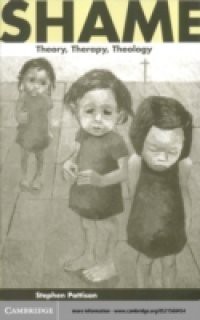In this book, first published in 2000, Stephen Pattison considers the nature of shame as it is discussed in the diverse discourses of literature, psychology, psychoanalysis, philosophy, history and sociology and concludes that 'shame' is not a single unitary phenomenon, but rather a set of separable but related understandings in different discourses. Situating chronic shame primarily within the metaphorical ecology of defilement, pollution and toxic unwantedness, Pattison goes on to examine the causes and effects of shame. He then considers the way in which Christianity has responded to and used shame. Psychologists, philosophers, theologians and therapists will find this a fascinating source of insight, and it will be of particular use to pastoral workers and those concerned with religion and mental health.

